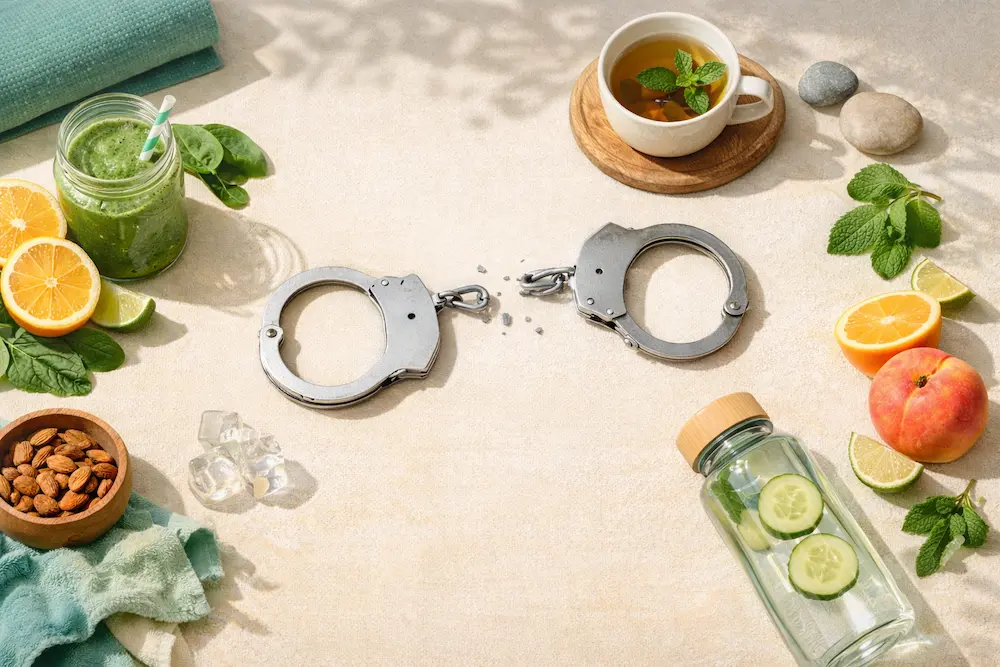Are You Hooked? The Addictive Truth About Energy Drinks
They promise energy, focus, and performance-but at what cost? Discover the science of energy drink addiction and what it’s doing to your brain and body.

Addictive Truth About Energy Drinks
Are You Hooked? The Addictive Truth About Energy Drinks
Let’s be honest - energy drinks are everywhere. From all-night gaming sessions to last-minute work crunches, they’ve become the go-to solution for instant focus and stamina. But behind the bold labels and neon cans lies something far less glamorous: a potent cocktail of addictive ingredients.
☕ What's Inside That Can?
Energy drinks usually contain a familiar cast of characters:
- Caffeine - the main stimulant, often in doses equivalent to 2–3 cups of coffee.
- Sugar - up to 50g per can, causing rapid blood sugar spikes and crashes.
- Taurine, guarana, and B vitamins - touted as performance boosters, but often poorly understood.
These ingredients don’t just give you a “boost.” They hijack your dopamine and adrenal systems, making your brain associate the can with reward and relief - classic addiction territory.
Learn more about how to break free at Uncanly.
Why They’re So Addictive
It’s not just about the caffeine. Energy drinks work by combining multiple fast-acting stimulants and habit-forming triggers:
- Immediate gratification: You feel “awake” fast.
- Ritual behavior: Morning can, post-gym can, pre-study can...
- Cultural identity: Red Bull for the gym crowd. Monster for gamers. Bang for biohackers.
These cues lock into dopaminergic reward loops, especially when paired with fatigue, stress, or emotional slumps.
The Downside You Might Be Ignoring
Research suggests regular energy drink consumption can:
- Increase risk of high blood pressure and arrhythmia
- Worsen anxiety, insomnia, and panic attacks
- Lead to sugar crashes, fatigue, and brain fog
- Cause dependence and tolerance - needing more for the same effect
In some extreme cases, energy drinks have been linked to seizures and cardiac events, especially in teens or people with heart conditions.
💡 Did You Know? Some energy drinks contain more caffeine per ounce than espresso - and that’s before you factor in the guarana (which also contains caffeine).
Withdrawal Is Real
If you’ve tried quitting and felt:
- Headaches
- Mood swings
- Irritability or “foggy” thinking
- Low energy and motivation
…you’re not imagining it. These are typical withdrawal symptoms, usually peaking 2–4 days after your last can.
And because energy drinks often come with high sugar, you might be experiencing dual withdrawal - from caffeine and glucose dependency.
Explore symptom trackers and craving tools at Uncanly.
Who Should Be Extra Careful?
Certain groups are especially vulnerable to energy drink risks:
- Teenagers (developing brains, lower tolerance)
- People with anxiety or heart issues
- Night-shift workers and gamers (chronic use + sleep disruption)
- Athletes (dehydration risk and overstimulation)
The Relapse Trap
Many users try to quit, only to rebound during a tough week or sleepless night. Why?
Because most people don’t replace what the drink was doing for them:
- Alertness → not enough sleep or hydration
- Focus → burnout or stress
- Mood boost → emotional regulation issues
The key isn’t just stopping. It’s substituting and re-training your brain.
How to Break the Habit (Without Losing Your Mind)
- Track Your Intake - Know how much caffeine/sugar you’re really consuming.
- Taper Down - Slowly reduce frequency or switch to lower-caffeine options.
- Replace the Ritual - Try herbal teas, adaptogens, sparkling water, or even movement breaks.
- Build Real Energy - Sleep hygiene, hydration, whole foods, and daily movement.
- Expect Withdrawal - Plan for days 2–4 to be rough, then better.
- Use Support Tools - Apps, peer groups, or even a 30-day detox challenge.
Knowledge is Power
Understanding what energy drinks actually do to your body and brain is a huge step toward change. You're not just “weak” if you struggle to quit - you’re dealing with a chemically reinforced behavioral loop.
But the good news? That loop can be broken.
And when it is, you’ll likely sleep better, think clearer, and feel more genuinely energized than you have in years.
Want to start your detox journey? Check out Uncanly - our craving-management and progress-tracking app built specifically for energy drink users. Because your future doesn’t need to come in a can.
